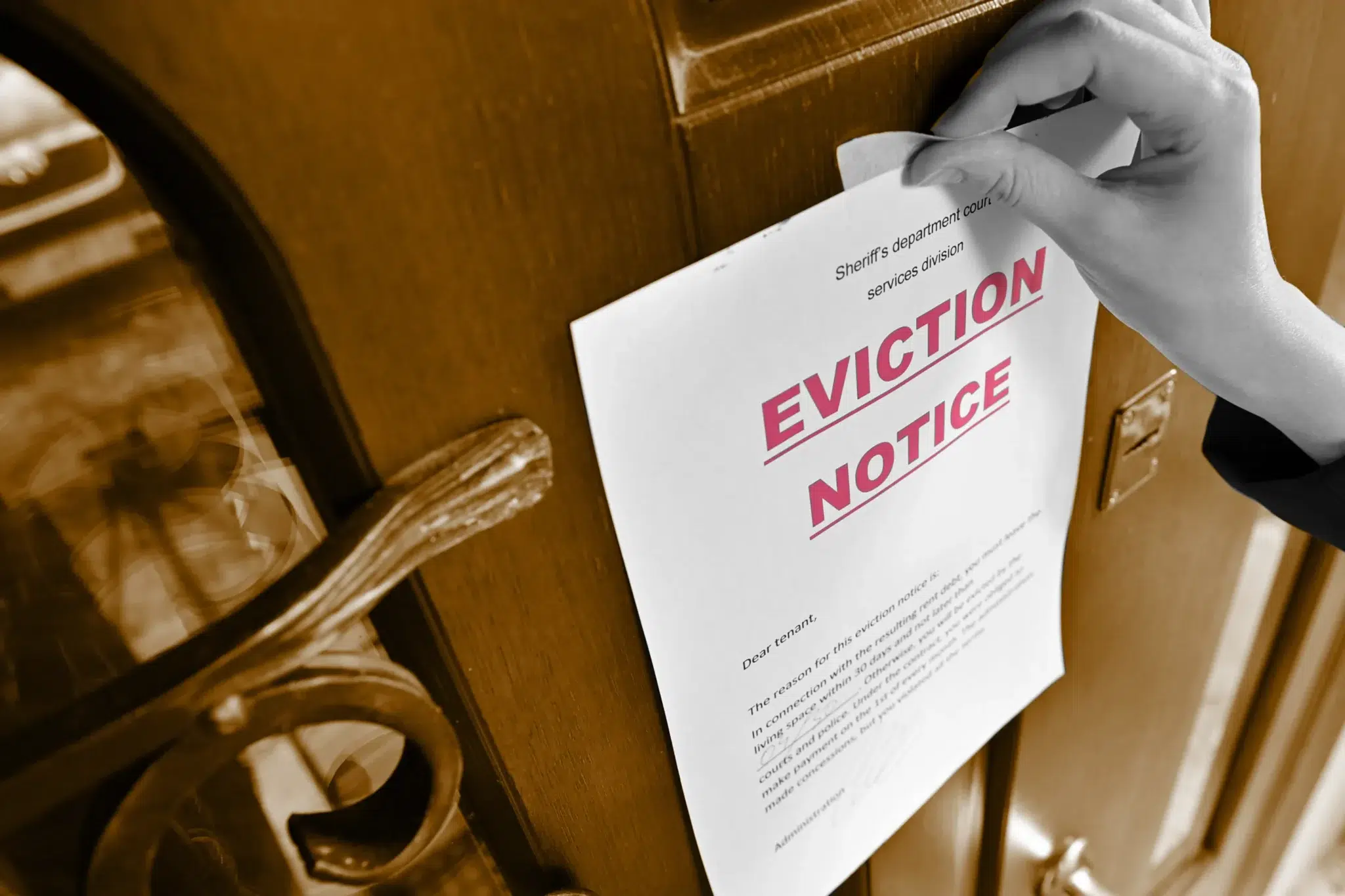Are you a Wisconsin landlord facing eviction challenges? Discover essential insights to safeguard your property and rights. Understanding eviction reasons, legal procedures, and costs empowers you to navigate the process effectively.
By staying informed and seeking legal guidance, you can confidently address tenant issues within the bounds of the law. Protect your investment by mastering Wisconsin’s eviction laws and procedures.
Eviction Notice and Lawsuit Process
When serving a Wisconsin eviction notice and filing a lawsuit in Wisconsin, you must follow specific legal procedures diligently.
In Wisconsin, the eviction process begins with the landlord serving a five- or 14-day eviction notice to the tenant for lease violations or non-payment of rent.
If the tenant doesn’t comply, the landlord then files an eviction lawsuit with the court, initiating legal proceedings.
The court serves the tenant a summons, and both parties attend a court hearing where a judgment is issued.
If ruled in favor of the landlord, the tenant is given a designated period, typically up to ten days, to vacate the premises.
Failure to do so may result in the involvement of law enforcement for the tenant’s removal.
Reasons for Eviction in Wisconsin
To proceed from the previous subtopic into the current discussion on reasons for eviction in Wisconsin, you must be aware of specific violations that can lead to the removal of a tenant.
Failing to pay rent, violating the lease agreement, committing waste on the premises, materially breaching a tenant’s legal obligations, or repeating violations within a year are all grounds for eviction in Wisconsin.
It’s crucial to understand these reasons to take appropriate action when necessary. Being knowledgeable about these violations will help you navigate the eviction process in Wisconsin more effectively and ensure that you’re following the legal requirements set forth by the state.
Legal Notices and Procedures
As a landlord in Wisconsin, you must serve a specific eviction notice to initiate the legal process. The eviction notice can be either a five-day notice for nonpayment of rent or a 14-day notice for lease violations.
After serving the notice, you need to file an eviction lawsuit with the court. The court will then serve the tenant a summons, leading to a court hearing where both parties will receive a judgment.
If the ruling is in your favor, the tenant will be given a designated period, typically up to ten days, to move out voluntarily. If the tenant fails to vacate, you can request the sheriff for removal.
Make sure to follow all legal procedures and requirements throughout the eviction process.
Court Proceedings and Tenant Removal
As a landlord in Wisconsin, you’ll attend a court hearing with the tenant to receive judgment on the eviction case. If the court rules in your favor, the tenant will be given a specific timeframe to vacate the premises voluntarily.
However, if the tenant fails to move out by the designated date, you can request the sheriff’s assistance for their removal. The sheriff will then return to forcibly evict the tenant if necessary.
It’s essential to follow the proper legal procedures and timelines for tenant removal to avoid any complications or delays in regaining possession of your property. Be prepared to take the necessary steps to enforce the court’s decision if the tenant doesn’t comply with the eviction order promptly.
Costs and Considerations
When dealing with eviction proceedings in Wisconsin, landlords frequently encounter various costs and considerations that must be carefully evaluated. These may include the filing fee of $94.50 required for initiating an eviction lawsuit.
It’s advisable to hire an eviction attorney to navigate the complexities of the process effectively. Understanding the legal procedures and state laws governing evictions is crucial to ensure a smooth and successful outcome.
Additionally, it’s essential to be aware that local laws may impose stricter requirements on landlords, necessitating thorough research and compliance. Various forms and rules specific to Wisconsin are available to assist landlords in properly executing the eviction process and protecting their rights.
Conclusion
Now that you have a better understanding of Wisconsin’s eviction process, you can confidently address tenant issues and protect your property.
By following legal procedures, communicating effectively with tenants, and staying informed about local laws, you can navigate the eviction process successfully.
Remember to seek legal advice if needed and always prioritize professionalism and respect in all interactions with tenants.
With this knowledge, you can handle evictions with confidence and ensure the protection of your investment.










